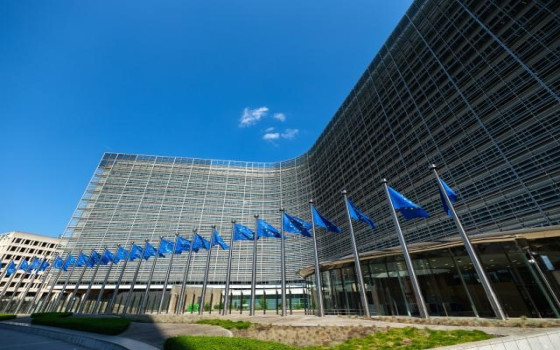
EU sanctions against Russia extended for destabilizing activities. Sanctions target 47 individuals and 15 entities.

- Europe and Arabs
- Saturday , 4 October 2025 10:2 AM GMT
Brussels: Europe and the Arabs
The European Council decided to extend individual restrictive measures against those responsible for Russia's destabilizing activities abroad for one year, until October 9, 2026, in light of Russia's continued hybrid activities, including foreign information manipulation and interference (FIMI), against the European Union, its Member States, and its partners. A European statement distributed in Brussels said, "In total, restrictive measures, in light of Russia's destabilizing activities, are currently applied to 47 individuals and 15 entities. Those listed are subject to an asset freeze, and EU citizens and companies are prohibited from providing them with funds, financial assets, or economic resources. Natural persons also face a travel ban preventing them from entering or transiting through the EU."
It is worth noting that on October 8, 2024, the Council adopted a framework of restrictive measures in response to Russia's destabilizing activities. The sanctions regime targets those involved in actions and policies of the Government of the Russian Federation that undermine the fundamental values of the EU and its Member States, as well as their security, stability, independence, and integrity. The sanctions regime also targets those responsible for hybrid activities against third countries and international organizations.
In May 2025, the EU expanded the scope of the framework of restrictive measures to allow the targeting of tangible assets linked to Russia's destabilizing activities and their financial supporters, and to allow the suspension of broadcasting licenses for media outlets. Russia is involved in disinformation.
In addition, on July 18, 2025, a statement issued by the High Representative on behalf of the European Union condemned the ongoing hybrid campaigns waged by Russia against the European Union, its Member States, and its partners. The statement emphasized that the EU has observed, over the past years, a deliberate and systematic pattern of malign behavior attributed to Russia, such as cyberattacks, acts of sabotage, disruption of critical infrastructure, physical attacks, manipulation and interference with information, and other covert or coercive actions. These activities have escalated since the beginning of the war of aggression against Ukraine and are very likely to continue for the foreseeable future.
The European statement concluded by saying, "The EU and its Member States will continue to utilize the full range of available tools to protect, prevent, deter, and respond to such malign behavior."












No Comments Found